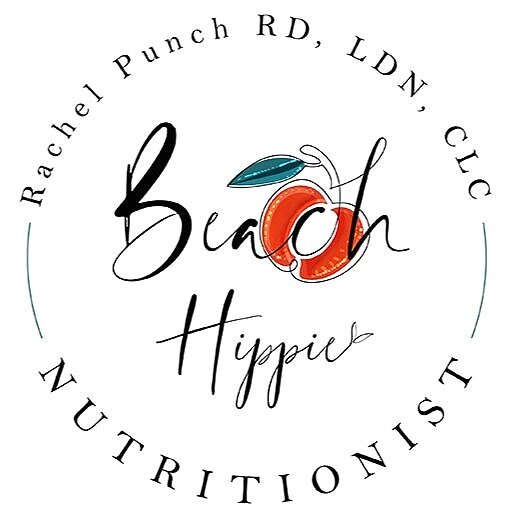Beetroot juice and the endurance athlete
As a dietitian who has the pleasure to work with many CrossFit and jiujitsu athletes to prepare them for competition, I was really intrigued to read about the additional research on artificial stimulants known as pre-workouts being used by endurance athletes. In recent years, a new class of dietary supplements called multi-ingredient pre-workout supplements (MIPS) has increased in popularity. These supplements are intended to be taken prior to exercise and typically contain a blend of ingredients such as caffeine, creatine, beta-alanine, amino acids, and nitric oxide agents, the combination of which may elicit a synergistic effect on acute exercise performance and subsequent training adaptations compared to single ingredients alone (Harty, et al. 2018). I know that might sound very tempting to go ahead and chug your pre-workout, right? But what if I told the Food and Drug Administration (FDA) does not crack down on supplement companies whatsoever! Which means, there is an good chance that your beloved pre-workout is tainted with drugs or other illegal substances. Although you might participate in a sport and/or activity that does not require a drug screen, it does not mean that you should not care about what you are ingesting. You only have one body, and you should treat it with respect, or you will be depending on medications to fix your health conditions in the future. These supplements can wreak havoc in your body causing so many health issues. What better way to share a few of my findings than writing my very first blog post regarding pre-workout (artificial stimulants) and beetroot juice! I am in no way affiliated with any company for compensation, I am just searching for a much safer alternative for clients and really want young athletes and maybe yourself to choose a much safer alternative.
Let us quickly list the a few not so bad - negative impacts that artificial stimulants (pre-works) can cause:
Tingling and facial picks
Headaches
Heart racing
Electrolyte Imbalances
Diarrhea
Anxiety
Insomnia
Long term effects with tainted stimulants due to DMBA (banned substance):
Heart attack
Brain bleed
Tachycardia
Death
The benefits of beetroot juice on their performance are starting to really gain traction in the sports nutrition world. I will take you on a little view on my scientific investigation on beetroot juice and its impacts on intermittent exercise performance. Before I begin, intermittent exercise pretty much just means blocks of different exercise movements in a short time frame, roughly less than an hour total. So let’s take a look, hopefully this makes sense to you. In the randomized, double-blind, crossover experimental design study I found it most impressive that the sprinters who were given rich beetroot juice had plasma nitric oxide [NO2] that was 237% greater in comparison to those who were given depleted beetroot juice (Wylie et al., 2016). The full outcome showed that beetroot juice might be ergogenic during repeated bouts of short-duration maximal-intensity exercise with shorter recoveries compared to longer duration intervals with a longer recovery (Wylie et al., 2016). I personally think this study was especially interesting to read, but there needs to be a larger sample size. However, here is an easy way to understand how beetroot juice can positively benefit exercise in short endurance training.
Beetroot juice has a particular acid which is readily absorbed in the gut which then passes through your bloodstream (Garnacho-Castano, 2020). Once reaching your blood stream there will be an increase in nitric oxide (NO2). So, what does nitric oxide do to impact exercise? It is involved in numerous cell processes, including widening the blood vessels aka vasodilation. This process assists in the body’s ability to speed up the delivery of nutrients and oxygen to working muscles during aerobic exercise, thus enhancing your exercise performance.
I am ending this blog with a few nutritional/physiological inputs. Please keep in mind that each athlete is their own individual self, so in cases where the athlete might experience leaky gut and has poor nutrition habits throughout the day, there could be a chance that beetroot juice could do nothing for your athletic performance. Therefore, having a dietitian to assess your individual needs, and health history could benefit your physical ability outcomes. Keep in mind that many supplement companies use artificial sweeteners, and sugar alcohols to increase the flavor of their supplements to increase sales. Research shows that artificial sweeteners, and sugar alcohols can have a negative impact on gut health. So, choosing a natural supplement as well as consuming a diet full of whole foods, will have a more positive influence on your overall health. To have your nutritional habits assessed please schedule a discovery call with “Beach hippie nutritionist” by visiting the consultation page, clicking discovery call and submitting the required information, or If you would like to purchase a package and get started as soon as possible feel free to purchase a package. Health insurance does not cover personalized meal plans, so this service will be cash pay only.
** Disclaimer: If you have any preexisting conditions please always check with your medical provider for drug and nutrient interactions as well as making informed decisions in your medical condition ***
Garnacho-Castaño, M. V. et al. (2020) ‘Understanding the effects of beetroot juice intake on CrossFit performance by assessing hormonal, metabolic and mechanical response: a randomized, double-blind, crossover design’, Journal of the International Society of Sports Nutrition, 17(1), pp. 1–12. Retrieved from: https://search.ebscohost.com/login.aspx?direct=true&db=s3h&AN=146996496&site=eds-live&scope=site
Harty, S. P., Zabriskie, A. H., Erickson, L. J., Molling, E. P., Kerksick, M. C., & Jagim, R. A., (2018). Multi-ingredient pre-workout supplements, safety implications, and performance outcomes: a brief review. Journal of International Society of Sports Nutrition. 15(41), https://doi.org/10.1186/s12970-018-0247-6
Wylie, L. J., Bailey, S. J., Kelly, J., Blackwell, J. R., Vanhatalo, A., & Jones, A. M. (2016). Influence of beetroot juice supplementation on intermittent exercise performance. European journal of applied physiology, 116(2), 415–425. https://doi.org/10.1007/s00421-015-3296-4

